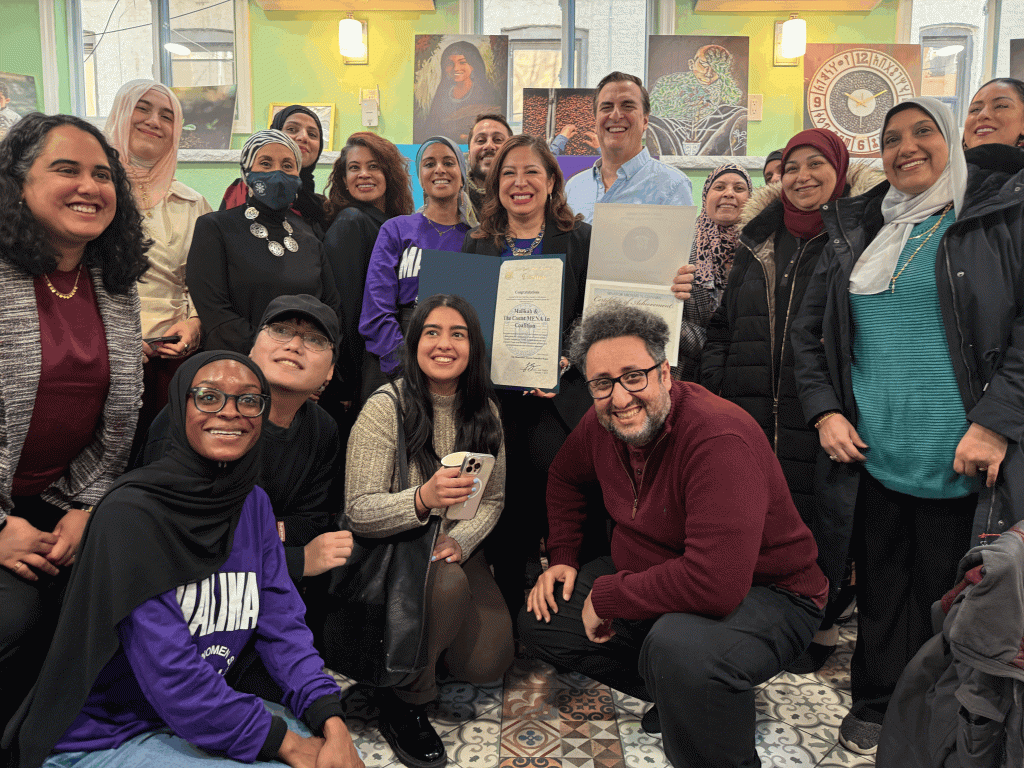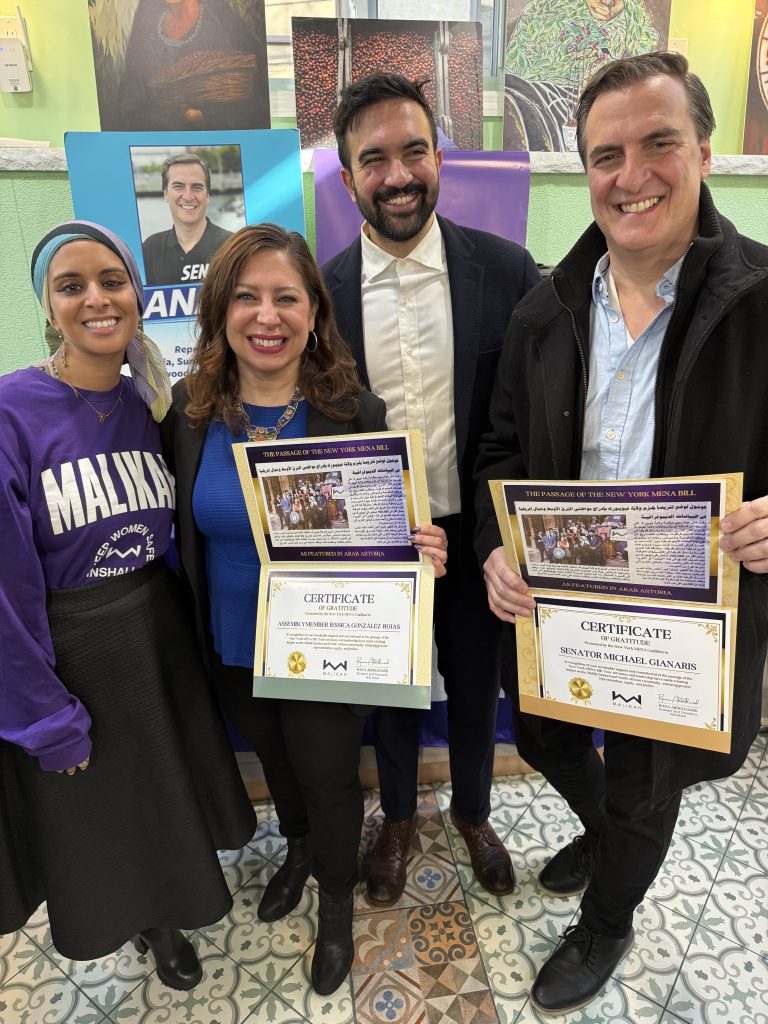
The Governor has signed a historic bill into law recognizing Middle Eastern and North African (MENA) communities as a distinct ethnic category in New York’s demographic data.
By MOHAMED FARGHALY
mfarghaly@queensledger.com
In a major victory for Middle Eastern and North African (MENA) communities, Governor Kathy Hochul has signed a historic bill into law that will officially recognize MENA people as a distinct ethnic category in New York State demographic data. This legislation, known as S6584B/A6219, will end the practice of categorizing MENA individuals under the broader “White” racial group, providing a clearer, more accurate picture of the state’s diverse population.
“We’re so proud that communities from across the globe call New York home,” Governor Hochul said. “Reviewing accurate data is a key starting point when crafting public policy. By ensuring that Middle Eastern and North African communities are accurately represented in State data collection, we’ll be able to identify ways to support this community going forward.”
The bill, which was championed by State Senator Michael Gianaris and Assemblymember Jessica González-Rojas earlier throughout last year, requires state agencies to collect demographic data that separates MENA populations from the white demographic. This move aims to address the longstanding underrepresentation and invisibility of MENA communities in government data, which advocates argue has led to insufficient support and resources for these groups.
The new law represents a major step forward for MENA communities in New York, ensuring they are no longer overlooked in state-level demographic records.
As Rana Abdelhamid, Executive Director and Founder of the anti-violence advocacy group Malikah, said, “As someone who grew up in and organizes in Little Egypt, I’m thrilled to see the passage and signage of the NY MENA Data Disaggregation bill by Governor Kathy Hochul, with the leadership support of State Senator Gianaris and Assemblymember Gonzalez Rojas. This is a much-needed and long-awaited step toward ensuring that MENA New Yorkers are counted, seen, and supported. This effort has significant civil rights and equity implications, but we know this is just the beginning.”
Abdelhamid, who has been a driving force behind the push for MENA data disaggregation, emphasized the importance of continued advocacy. “We must continue organizing as a coalition to ensure that MENA communities in New York achieve the equity, visibility, and representation we deserve. Malikah is committed to this work, and I’m proud of the grassroots power and our NY MENA coalition that has made this victory possible.”
The legislation aims to ensure that the unique needs and challenges of MENA communities are better understood and addressed. With more accurate demographic data, policymakers can create targeted solutions to tackle disparities in healthcare, education, housing, and social services.
“For far too long, Middle Eastern and North African New Yorkers have been afforded data disaggregation only in matters of surveillance and suspicion,” said State Assembly member, Zohran Kwame Mamdani said at a rally last year. “The time has come for that to be applied for the purposes of state support, instead of the policy of erasure that we have today.”
MENA communities, which include a broad range of ethnic, cultural, and religious groups, have often been invisible in demographic data, leading to a lack of tailored support in areas such as healthcare and social services. Advocates argue that this new law will help illuminate disparities, including higher COVID-19 death rates within MENA populations, and enable government programs to more effectively address their needs.
The passage of this bill comes at a time of growing recognition of MENA populations on both state and federal levels. The Biden administration recently approved new census options to identify “Middle Eastern or North African” individuals separately, with the 2030 census set to include a MENA category for the first time. However, New York has taken the lead by implementing this change before federal action, establishing the state as a pioneer in ethnic data collection.

Courtesy Malikah Instagram Page
This landmark legislation aims to address MENA communities’ unique needs by providing more accurate data for targeted policy solutions and resources.
Senator Gianaris, who represents parts of Astoria, Sunnyside, and Maspeth, where many MENA residents live, has been a tireless advocate for the bill.
“Miscategorizing a New Yorker’s race is not only offensive but has real-world impacts on services and resources particular communities receive,” Ginaris said. “I am proud the Governor is signing this critical legislation to recognize and dignify New York’s Middle Eastern and North African communities.”
The bill’s success is the result of months of grassroots organizing and coalition-building, with over a dozen MENA organizations across the state coming together to push for this change.
“For too long Middle Eastern and North African (MENA) communities have been made invisible by our lack of data collection or lack of disaggregation of the data,” Assemblymember Jessica González-Rojas said. “By not including categories for these various communities in the Census and not disaggregating the data in our state institutions, the needs of neighbors have been unaccounted for, and the government should always work to better represent the needs of all our constituents. I am so proud to have worked with Malikah, the coalition of organizations, and my Senate partner, Senator Gianaris to have gotten this bill signed into law. It is past time that these communities are accounted for and better understood and represented. Thank you to Governor Hochul for recognizing this and signing the bill. This will allow us to better serve MENA communities as a government and to offer them the resources they need and deserve.”
With this new law in place, the NY MENA Coalition and other advocates are optimistic that this legislation will provide a foundation for future policy improvements, ensuring that MENA communities in New York are properly counted, represented, and resourced.
“So excited to see Middle Eastern and North African New Yorkers properly recognized and represented in our data,” State Senator Kristen Gonzalez said. “Thank you to the Governor, Sen. Gianaris, AM Gonzalez-Rojas, and all the advocates who stood up for MENA communities.”


